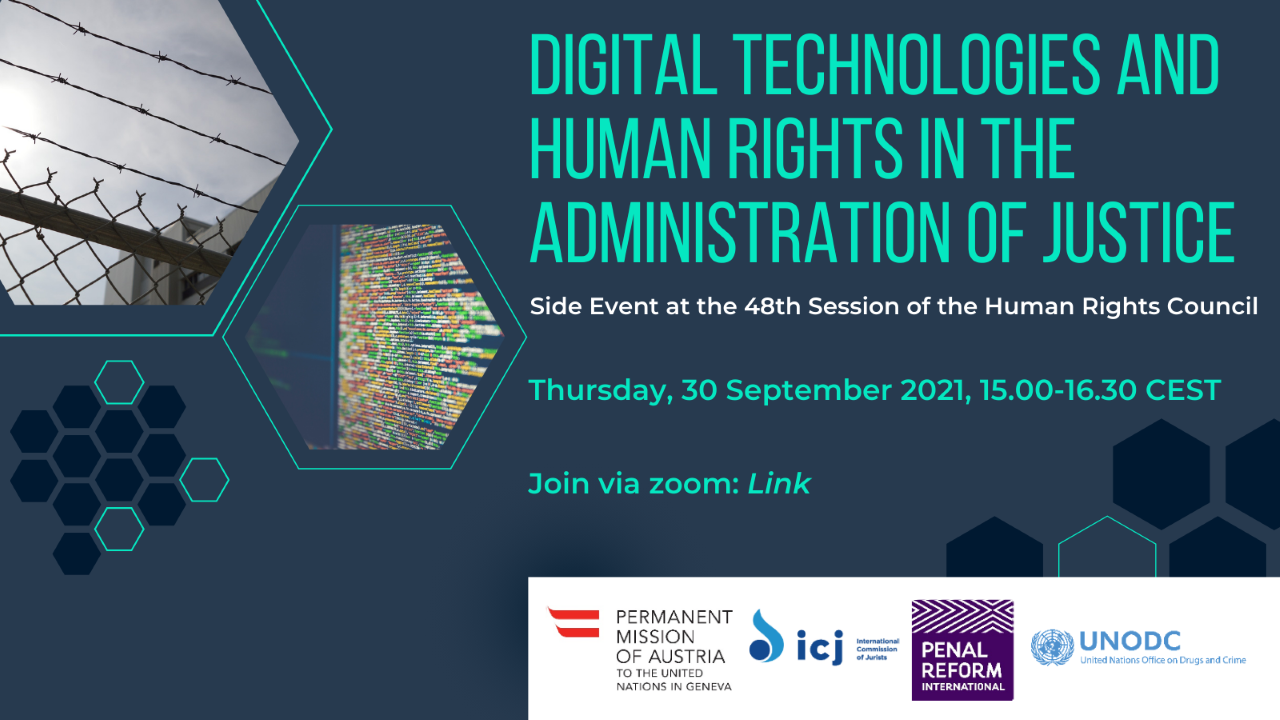The use of digital technologies in the administration of justice has significantly increased over the recent years, a trend that has been further accelerated by COVID-19. Virtual courts, the use of algorithms and smart prisons have the potential to enhance efficiency and accessibility but may also carry adverse human rights impacts. This event will provide an overview of this emerging field and an opportunity to discuss the human rights implications, including concerns around the right to a fair trial, due process, non-discrimination, and equality and equal protection before the law.
Date: Thursday, 30 September 2021, 15.00-16.30 CEST (Geneva time)
Register at: https://us02web.zoom.us/webinar/register/WN_NqIyx_DdTlSDp6c0DGd8TQ
You can find the agenda here.
Background
Recent years have seen rapid advances in the development and use of digital technologies in various aspects of criminal justice systems across the globe. In addition, the COVID-19 pandemic has prompted justice sector actors in many countries to increasingly turn to virtual solutions involving enhanced digital technology to facilitate criminal justice processes while reducing the risk of transmission. Virtual courts and remote hearings for criminal proceedings have been implemented in many countries, and the use of algorithms in criminal justice decision-making, including for sentencing and release decisions, is expanding. Digital communication technologies are already in use in many prisons for visitation, rehabilitation and health care provision, and some countries are testing ‘smart prisons’ which utilize biometric and digital technology to manage prison populations.
Digitalization and other technological advances have the potential to significantly enhance efficiency and accessibility in the administration of justice but may also carry adverse human rights impacts. The use of video conferencing technology to conduct criminal trials may infringe the rights of accused persons by effectively preventing them from presenting all evidence in their cases, for example marks of torture or other forms of ill-treatment. The use of algorithms might bear the risk of perpetuating discrimination, including in respect of profiling the investigative phases of criminal justice. Furthermore, the digital divide may lead to a lack of equal protection of the law, particularly in countries where significant parts of the population live without access to the internet.
It is critical, therefore, that the design and use of such new technologies is undertaken with respect for the human rights of persons in contact with the justice system, including those deprived of their liberty. This event will provide an overview of this emerging field in the administration of justice and an opportunity to discuss the human rights implications, including concerns around the right to a fair trial, due process, non-discrimination, and equality and equal protection before the law.




